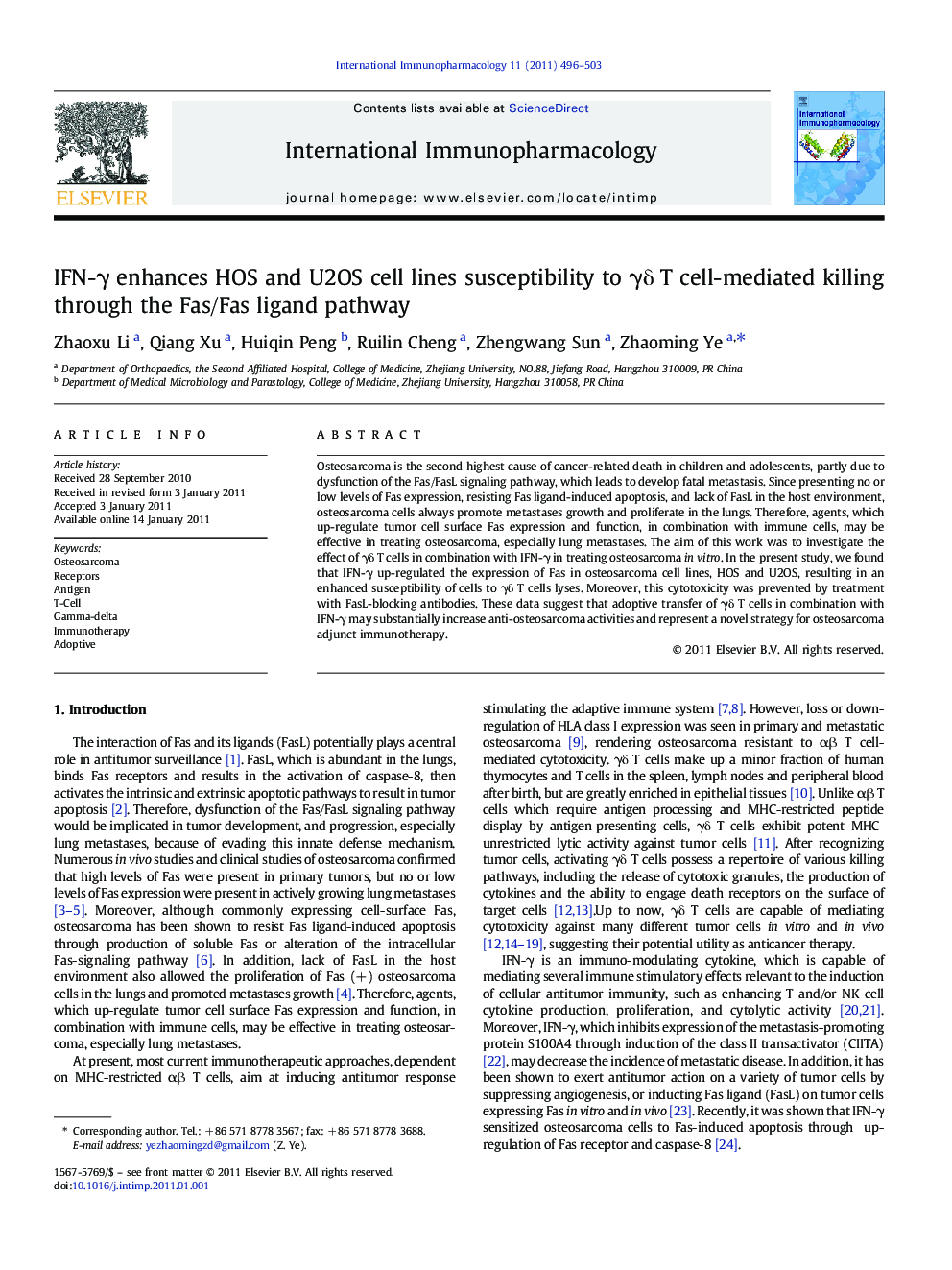| Article ID | Journal | Published Year | Pages | File Type |
|---|---|---|---|---|
| 2541301 | International Immunopharmacology | 2011 | 8 Pages |
Osteosarcoma is the second highest cause of cancer-related death in children and adolescents, partly due to dysfunction of the Fas/FasL signaling pathway, which leads to develop fatal metastasis. Since presenting no or low levels of Fas expression, resisting Fas ligand-induced apoptosis, and lack of FasL in the host environment, osteosarcoma cells always promote metastases growth and proliferate in the lungs. Therefore, agents, which up-regulate tumor cell surface Fas expression and function, in combination with immune cells, may be effective in treating osteosarcoma, especially lung metastases. The aim of this work was to investigate the effect of γδ T cells in combination with IFN-γ in treating osteosarcoma in vitro. In the present study, we found that IFN-γ up-regulated the expression of Fas in osteosarcoma cell lines, HOS and U2OS, resulting in an enhanced susceptibility of cells to γδ T cells lyses. Moreover, this cytotoxicity was prevented by treatment with FasL-blocking antibodies. These data suggest that adoptive transfer of γδ T cells in combination with IFN-γ may substantially increase anti-osteosarcoma activities and represent a novel strategy for osteosarcoma adjunct immunotherapy.
